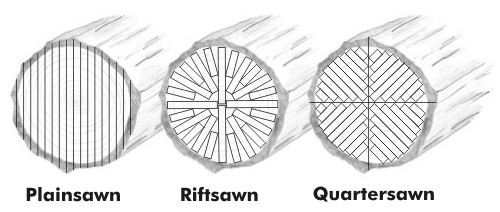|
aarongreen -> RE: Friederich with flatsawn neck and heel (Dec. 29 2011 12:59:58)
|
It seems to me that in classical and flamenco guitars you see every kind of cut, flat, quarter or rift and they all work just fine. As long as its a good and stable piece of wood, that is. I've been told that quarter and flatsawn are not all that different in terms of strength, but stability might be another issue.
In my own experience I built a guitar with a beautiful and perfectly quartered cedro neck (including a carbon rod) that just moved all over the place. The movement was totally humidity related, which makes me think that the wood itself was what is called "reaction wood" or basically came from a branch as opposed to the trunk of the tree. Most annoying as whenever it would come back to my shop, which is consistently at 40%, within a few days the neck would be perfect. The owner was not all that good about humidity and he just couldn't see why this guitar would behave differently than his others. I thought perhaps it was the fingerboard, so I put a new one on, which did absolutely nothing. Eventually I put a new neck on and so far so good.
SEden,
Are you sure you are talking about the top at 4 mm? Friederich laminates his sides for a total of 4 mm and has done so for 30 or more years. However his tops are usually quite thin. I've never seen or heard of one with a top that was not quite thin.
In any case he's a hell of a builder.
|
|
|
|

